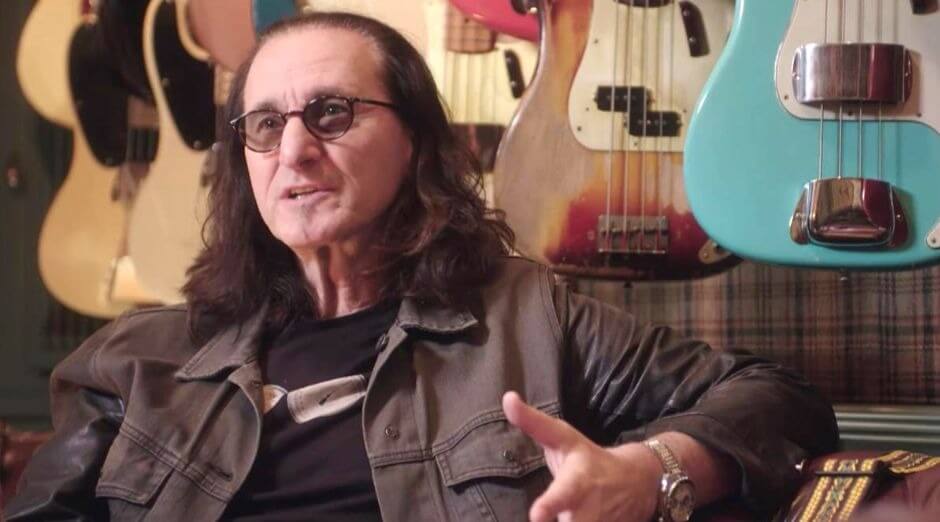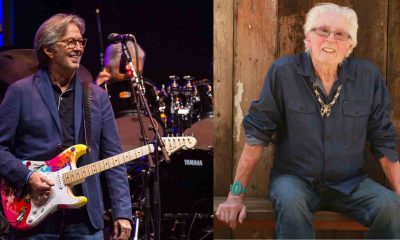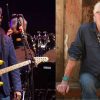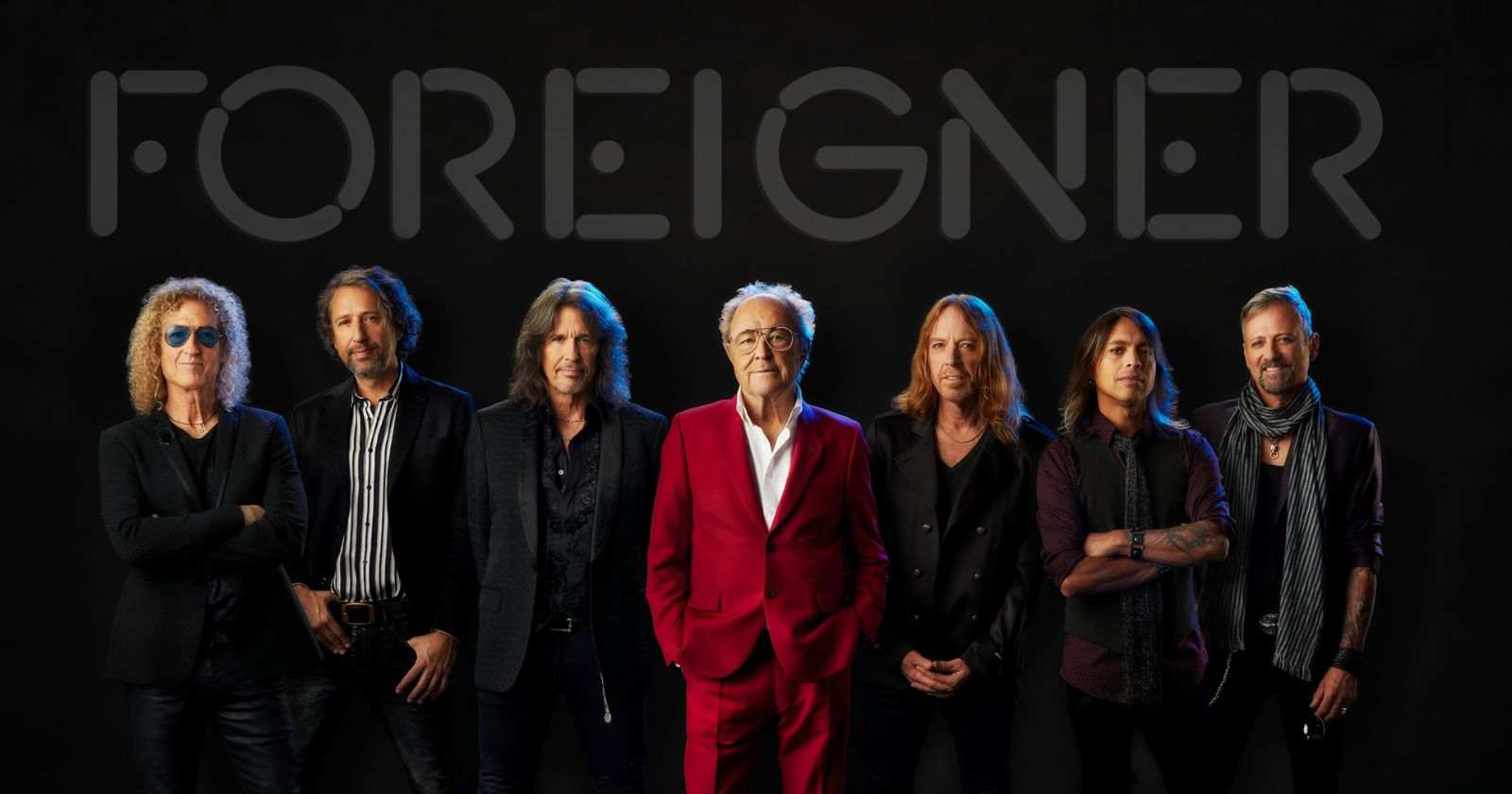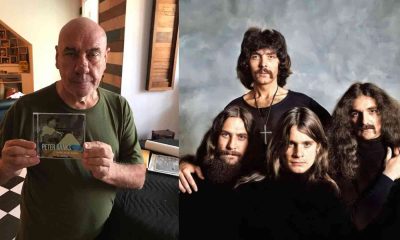ARTICLES
Rush’s Geddy Lee reveals his 10 favorite bass players
Rush‘s bassist and singer Geddy Lee talked about his 10 favorite bass players in an interview with Rolling Stone and explained why they were an inspiration for him. Among the chosen ones are The Who‘s John Entwistle and Cream‘s Jack Bruce, that are some of his biggest influences on the instrument.
Advertisement
Rush’s Geddy Lee 10 favorite bass players:
James Jamerson
“When I was a kid and I was working in my mom’s variety store, it was a 45-minute drive to work with her every day and back. And pop radio was always on in the car, and of course, I would be the air drummer on the dashboard, as many people were.”
“And the same thing in the store [where] we worked — the radio was on all the time. So I was exposed to a lot of Motown music. And that really dominated the airwaves in those days. And there were all these great songs that were subconsciously influencing me, in a strange way. If you listen to the music of Rush, where do you come to James Jamerson and Motown music? [Laughs] But nonetheless, all the early bands I played in, we played all these great Motown songs, because that’s what was going on.”
“If wanted to play in a little neighborhood band, you played, “Hold On, I’m Comin’,” and great Wilson Pickett songs, and Sam and Dave. Anyway, it wasn’t until much later I realized the common denominator for a lot of these artists was James Jamerson, and how important his lines were to making those songs move, and how important the melody was in those bass parts. So that was a great revelation to me. When I finally put a face to all those various songs,” Geddy Lee said.
John Entwistle (The Who)
“He was one of the first gods to me. Gods of rock. [Laughs] Ever since I first heard “My Generation,” it’s like, “Who is that?” That was a name you needed to know. And I still rank him as the greatest rock bassist of all time, in one sense. First of all, he was ferocious, and he had a sound that dared to encroach upon the domain of the guitar player. So he had a very loud, very aggressive tone.”
“And to hear that on pop radio — I mean, “My Generation” didn’t get as much play over here as it did in the U.K., but it was a pop hit with a bass solo in it, no less. So I was drawn to, first of all, his tone, secondly, his audacity and thirdly, his dexterity. I mean, he had incredible dexterity, and just moved across the strings in such a fluid manner with such ease, and yet, sounded so tremendously ferocious at the same time.”
“We all tried [early on] to play “My Generation” and failed miserably, but you do your crappy version of it. … I would say [Who songs] were harder to do than, say, a cover of “Road Runner,” by Junior Walker and the Allstars, where you can transform that into sort of a rock bass [line] without too much trouble. But yeah, the Who were much tougher,” Geddy Lee said.
Jack Bruce (Cream)
“[Cream] were far and away my favorite band when I got old enough to appreciate rock music, and I was getting more and more into rock. Cream was such an influence on early Rush and me as a bass player. We would do our own version of “Spoonful.” We would play in the coffeehouses and the high school dances and all that stuff. We really tried to emulate Cream in the earliest days of Rush, so there was a real bond to Jack Bruce’s playing for me.”
“And I was fortunate enough to be able to go see them in 1969 too, when they played here in Toronto at Massey Hall. I have vivid memories of it. It was just a mind-blowing moment for me. I went down by myself, ’cause I couldn’t find anyone who had either enough money or desire to see Cream that day. I’ll never forget that. He was a huge influence to me, and I stayed a fan of his through the years and through his solo work. I loved his solo work. Interesting songwriter, really emotive vocalist, and just an incredible player.”
“We were in a three-piece, and we sort of modeled ourself after three-piece bands, bands like Cream, Hendrix, Blue Cheer. These were all bands we emulated in the early days. The bass player has a bigger role in that format, especially when the lead guitarist is soloing. You have to provide enough noise behind him to keep it from sounding empty. So it’s a license to be a bit obnoxious, which I always appreciated as a bass player,” Geddy Lee said.
Chris Squire (YES)
“A friend of mine and I, we used to skip school all the time when we were in junior high school, and we would go to his house. And we were both just nuts about music, and he would turn me on to a lot of different things that I’d never heard, a lot of progressive-rock bands that I didn’t know of. So one day, we skipped class and went to his house, and he put on this record. It was Yes, Time and a Word. And I was just blown away by the sound of Chris Squire’s bass.”
“I mean, it was so up-front. And again, it reminded me of John Entwistle in that aggressive way, but the music was much more adventurous and much more layered. The song I first heard was the song called “No Opportunity Necessary, No Experience Needed.” If you put that song on, it’s very bold the way it starts, almost like a classical intro. And then boom, the bass comes in and it’s so blistering. For a young kid bass player, it was amazing. I mean, it blew me away. And for the next umpteen years, I became a die-hard Yes fan, and a die-hard Chris Squire fan.”
Geddy Lee continued saying:
“The first time [Yes] came to Toronto, my friend Oscar and Alex [Lifeson] and myself, we lined up at Maple Leaf Gardens all night to get tickets, and we ended up with second-row seats. Yeah, I’ll never forget that. We drove out. I think it was that same week, they were also playing in Kitchener, Ontario, and we drove out there and saw them out there as well. They still are the only band I’ve lined up all night to see [laughs].”
“It was fairly surreal to me, when I was asked to [play “Roundabout” with Yes at the 2017 Rock and Roll Hall of Fame induction], especially that song, which was such an important song, not only for me as a bass player, but also, there are very few progressive rock songs that have been such important hit singles, too. So it’s a fairly unique song, and the bass drives that song. There’s just no doubt about it. So I was really deeply thrilled to be able to play with them. It was a very strange but happy experience for me.”
John Paul Jones (Led Zeppelin)
“Well, Zeppelin were a huge influence on my band. And our original drummer, John Rutsey, he happened to be at the very first gig in Toronto, at a place called the Rock Pile. He came home raving about that band, and so the day that first album dropped, we were lined up the store to get it. And I remember running home to my house and putting it on. And the three of us just sat around my record in room, listening to the first Zeppelin record, and just blown away by the tone of the band, first of all.”
“They were really, for us, the first heavy band. And we could hear all those blues riffs and all the sound that they had, and how they sort of had grown out of the blues-rock movement of England, and yet they brought, through Jimmy Page’s guitar, all these more ethereal moments.”
Geddy Lee continued saying:
“But the thing that held the whole thing down was John Paul Jones’ bass playing. If you listen to “How Many More Times,” I mean, no matter how wild that song gets at times, there’s John Paul Jones just holding it all down in such a fluid way. And he’s one of those guys that did not have a twangy sound, but nonetheless, his bass was always loud and proud, and such an integral part and such interesting melodies.”
“As they progressed as a band, his musical impact was clear, that it was such a huge musical impact in the final result of what Led Zeppelin sounded like. I mean, if you listen to what’s going on [in] a song like “What Is and What Should Never Be,” where would that song be without the bass part? It is unbelievable. It’s such a well-written and fluid and dextrous bass part, that it just finishes it off.”
“Not only do I have so much respect for him as a player, but he’s such a lovely man. Such a generous guy. [When we met for an interview for my book,] he was so generous with his time. We had such a great time visiting together and hanging out for an afternoon, talking about his past and basses. Really considerate dude. Really, I just can’t say enough good things about him.”
Jaco Pastorius
“Well, I was not a jazz-rock guy, but every once in a while, something would catch my ear that would take me back to that style of music, and I would listen to different things. I remember there was a time when the Heavy Weather album came out, from Weather Report, and someone had turned me onto it. I remember sitting in the bus, listening to it, and just going, “Oh, my God. Who is this bass player?” So I wasn’t as well-versed with Jaco and all the other players in that band — Joe Zawinul, etc. Until somebody had turned me onto it.”
“We were on tour, and I remember we were playing, I think it was in Milwaukee, and the night before our gig, Weather Report were playing at the same theatre in Milwaukee. So we all went to the show, and it was the first time that I’d ever seen Jaco live. And of course, that’s an experience that is just impossible to replicate. He was incredible, and bizarre, and histrionic, and that thumb.”
Geddy Lee continued saying:
“I mean, he was really a once-in-a-lifetime player, and I was so fortunate that I got to see him in that kind of setting, playing that challenging music, because it is very challenging music.”
“So yeah, I became a fan, but again, I’m not a dyed-in-the-wool jazz-rock fan. So I couldn’t list off a ton of jazz-rock songs, or other great jazz-rock bass players that are out there. But Jaco just blew me away, and he sort of crossed the line from jazz into a showy kind of rock playing, even though I’m sure jazz aficionados would hate me saying that. But he was flash. He was not afraid to be flash. He did crazy things onstage. … And to see him live was something special.”
Paul McCartney (Beatles)
“[McCartney] gets overlooked as a bassist, but as a pop bassist goes, he’s such a melodic player. And you’re talking about a guy who wasn’t originally the bass player for the band. … He adapted, of course, and he picked it up. I just find his story really interesting, as a bass player. So he comes at the instrument from a much more melodic place, and you really hear that in a lot of Beatle music.”
“And if you listen to “Taxman,” or if you listen to “Come Together,” and a range of music in between, that bass part is always so round. It’s always so bouncy and melodic, and I think that’s really no small part of the infectious nature of Beatles songs. It really added a great element to those songs.”
“I think he was sort of subconsciously working his way into my psyche as a bass player. Although the style of music that I played wasn’t Beatles style of music, I did have a great respect for them. We used to play a version of a song called “Bad Boy” that was fashioned sort of after a song that the Beatles did. The Beatles did a cover of that as well. So we all listened to the Beatles. … I was always respectful of what Paul McCartney brought to the Beatles. Not only as a singer, but as a bass player.”
Flea (Red Hot Chili Peppers)
“Flea blows my mind. I mean, when you talk about a generation of bass players that started slapping … there’s so many. I guess it grew a little bit out of jazz, a little bit out of R&B. I remember for a time, that’s all you heard. Every bass player was slapping and popping, slapping and popping. And then there was Flea, who could slap, pop, and play everything in between, to such incredible, dextrous degree, that I just felt he used that in such a brilliant way. He brought that sensibility of … I guess, what you would call in that period, sort of a contemporary R&B style of play into a rock genre. [He] always kept it rock. Always does rock.”
“And I love the fact that he has all those tools in his toolbox. More tools than most other bass players have, in my view. And he always experimented with different instruments, and got a bit of a different tone. And again, here’s a guy that did a lot of pop music, and yet that pop music had very aggressive, very creative, very melodic bass lines. So I just love that about his playing, and I’ve come to appreciate it over the years, more and more. He’s very identifiable, and he has a singular style of playing,” Geddy Lee said.
Les Claypool (Primus)
“I didn’t really know much about [Primus] until just before they started touring with us. Somebody had sent me their records and we listened to them, and [asked] about them coming out on tour with us. I loved how wacky they were. It wasn’t until we toured together that I really got to know his playing. And saw how creative and adventurous a player he was. Very, very, very different from anything I’ve seen. There’s no one like [Les Claypool]. Nobody plays like Les. And he was a big Rush fan, so he’d be always talking about Rush songs, and, “How did [you] play this?, “How did [you] play that?” I was equally interested in how he was playing, and how he got that rhythmic style.”
“He actually influenced me as a player to try to push the boundaries of my rhythmic abilities. I would say that tour I did with Primus was transformational for me. So as much I appreciated that, as a kid, he would come to Rush shows and want to do that, me, listening to him playing before us every night on that tour made me want to be a better player in a different way. So there was a wonderful exchange of respect going on there. And to this day, he’s a dear friend. I love his playing. I love his attitude, and I just think he’s one of the most creative people in rock,” Geddy Lee said.
Jeff Berlin
“Well, I was a Yes fan — that’s well documented. And [original Yes drummer] Bill Bruford started doing some solo work. And on a couple of his solo records, he had a bass player named Jeff Berlin. I didn’t know who this guy was, but his playing was incredible. And we happened to be in the UK, and they were doing a gig at a club. … I think Neil and I went down to see the show. And as much as I loved Jeff Berlin on record, when I saw them live, he just knocked me out.”
“He was a rock player, jazz player, with incredible range. Used all his fingers, and he could play like a Spanish guitarist on a flamenco guitar. He could turn that bass into so many different things. His playing really affected me.”
“Fortunately, we became pals and have stayed friends over these years. He ended up being more aligned in a sort of jazz-rock area, so he started playing more with jazz-rock players. And then he opened a school for bass players. He’s just a very under-the-radar, but incredible talented and influential bass player, I think. Other bass players know who Jeff is, and how great he is. Not a mainstream name, but no less a great player.”
“Like Percy Jones of Brand X, who’s another guy I could’ve put in the same category with Jeff. … Percy Jones was a phenomenal bass player. It’s almost like you expect jazz bass players to be great, but they’re not all memorable. So those two guys certainly were,” Geddy Lee said.


